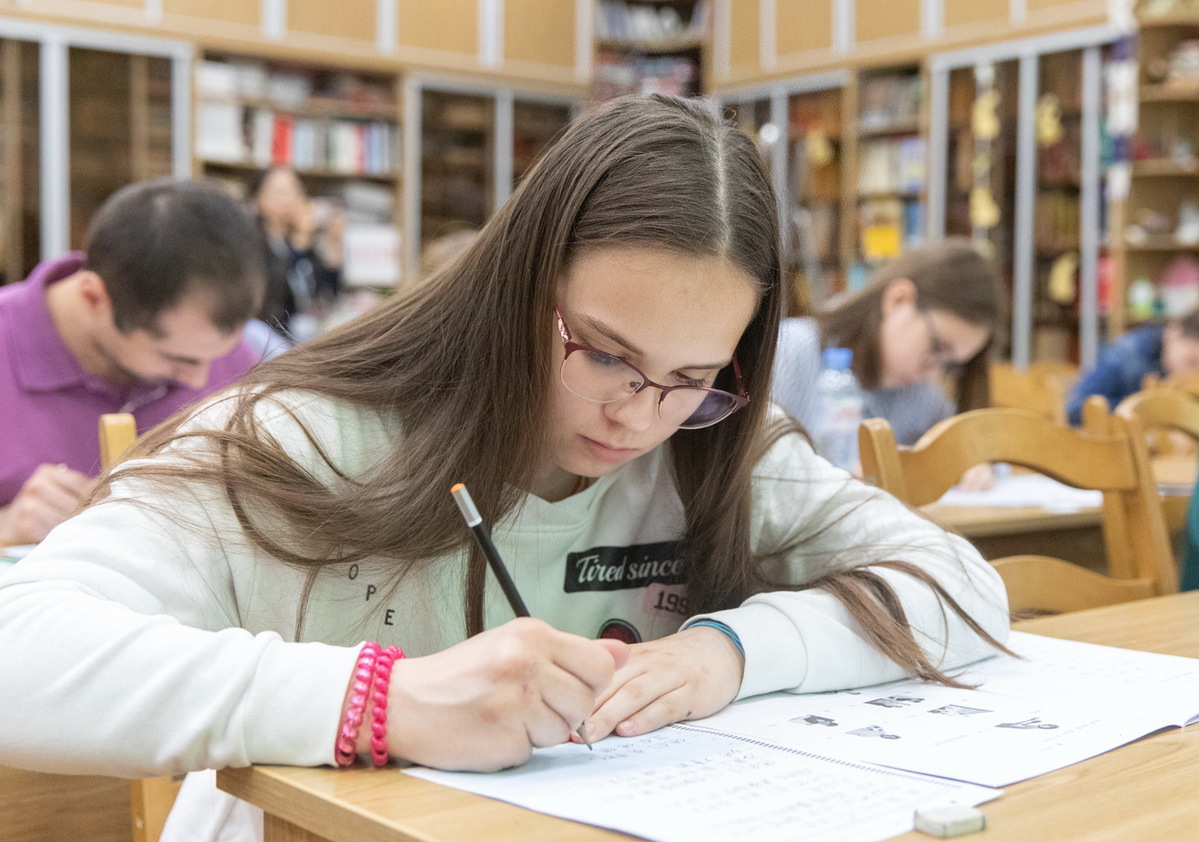Mandarin test added to exam in Russia


More Russian students are learning Chinese thanks to increasing economic and cultural exchanges between the two countries.
This year, for the first time, middle school students in Russia have taken Mandarin as an elective foreign language in Russia's national college entrance exam, Sputnik News reported.
Mandarin has become the fifth elective language test-in addition to English, German, French and Spanish-in the college entrance exam.
Work to prepare for the official introduction of the exam, including designing oral and written tests and preparing reference materials, has been underway for over three years, Sergey Kravtsov, deputy minister of education and science of the Russian Federation, said in March.
The number of Mandarin learners in Russia grew from 17,000 in 2007 to 56,000 in 2017, according to a survey by a regional linguistics research center in Russia.
Olga Kondrikova, 22, a master's student at Renmin University of China in Beijing, said it was much harder for her to learn Chinese than another European language because it is based on a totally different system, and one needs to adapt to a different learning approach.
"I became more interested not only in the Chinese language, but also in China, so I decided to do my master's here and I decided to study law, because through law you can also explore Chinese social and political systems," she said.
More Russians have started to learn Chinese because the two countries share common views on many things and cooperate in different fields, Kondrikova said.
"The cooperation is based not only on mutual benefit, but also on mutual respect," she said. "And I'm glad that I chose to learn Chinese and study Chinese law, because I see the many opportunities Russian-Chinese cooperation offers to young specialists like me."
Korkaleva Yulia, 25, a doctoral student at Renmin University of China, said she has been studying Chinese since she was 8.
"My parents wanted me to learn Chinese when I was 8, because they were sure that China would grow really fast and learning Chinese might be useful for my future," she said. "So when I graduated from my high school in Russia, there was no better option but going to China to practice and improve my Chinese."
The best way to learn something new is listening to it repeatedly, and the same is true for Chinese, she said.

































